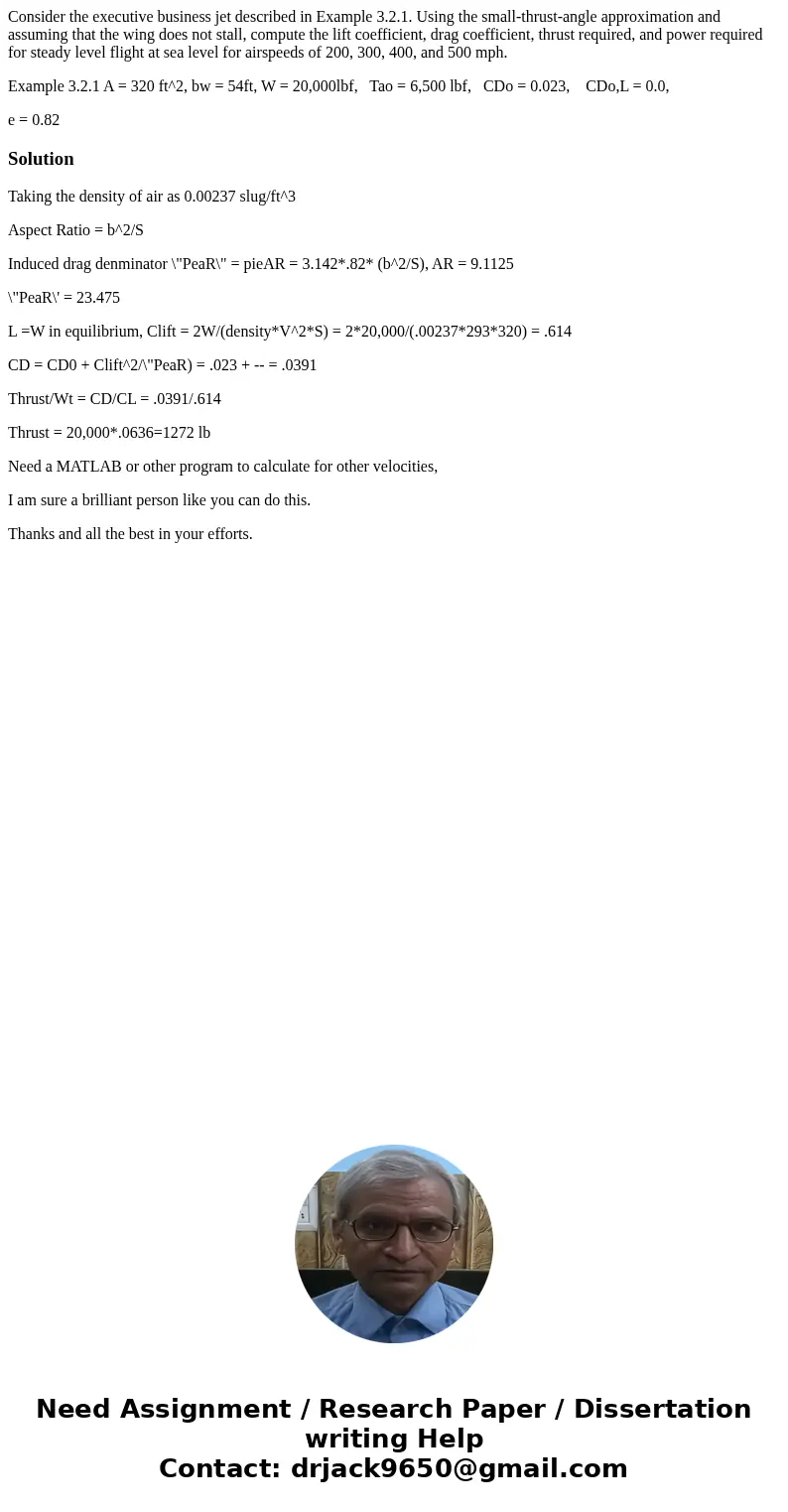Consider the executive business jet described in Example 321
Consider the executive business jet described in Example 3.2.1. Using the small-thrust-angle approximation and assuming that the wing does not stall, compute the lift coefficient, drag coefficient, thrust required, and power required for steady level flight at sea level for airspeeds of 200, 300, 400, and 500 mph.
Example 3.2.1 A = 320 ft^2, bw = 54ft, W = 20,000lbf, Tao = 6,500 lbf, CDo = 0.023, CDo,L = 0.0,
e = 0.82
Solution
Taking the density of air as 0.00237 slug/ft^3
Aspect Ratio = b^2/S
Induced drag denminator \"PeaR\" = pieAR = 3.142*.82* (b^2/S), AR = 9.1125
\"PeaR\' = 23.475
L =W in equilibrium, Clift = 2W/(density*V^2*S) = 2*20,000/(.00237*293*320) = .614
CD = CD0 + Clift^2/\"PeaR) = .023 + -- = .0391
Thrust/Wt = CD/CL = .0391/.614
Thrust = 20,000*.0636=1272 lb
Need a MATLAB or other program to calculate for other velocities,
I am sure a brilliant person like you can do this.
Thanks and all the best in your efforts.

 Homework Sourse
Homework Sourse